Neglected Tropical Diseases : Rethinking Research-based Elimination Strategies
- Par Kimeng Hilton
- 20 Aug 2023 15:35
- 0 Likes
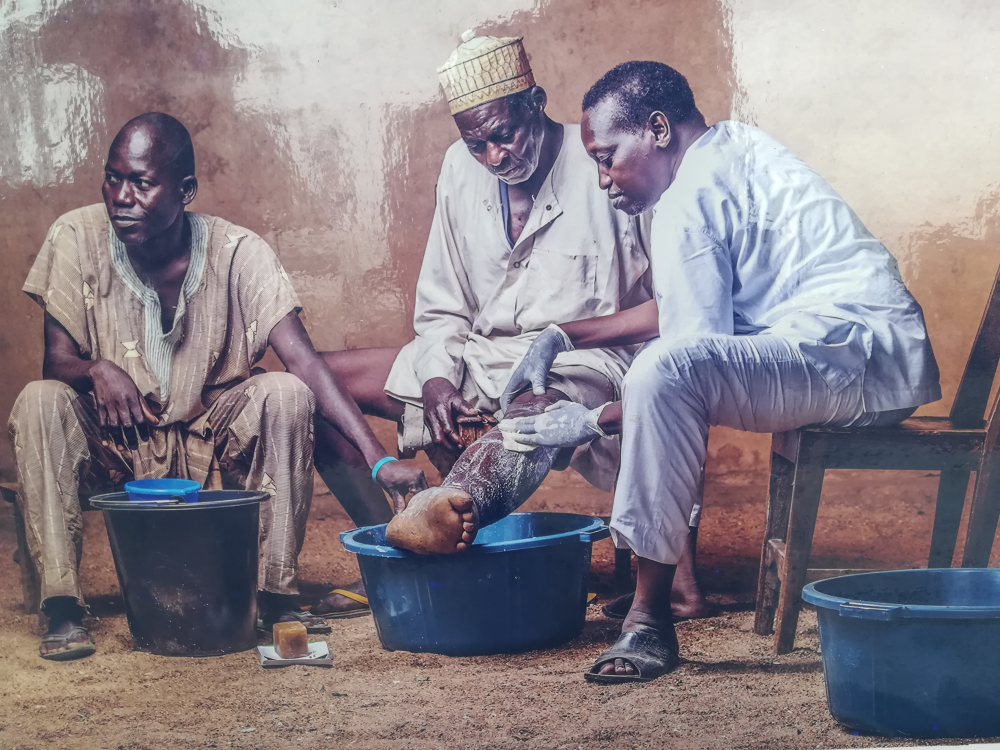
The Ministry of Public and Helen Keller Intl on August 18, 2023 in Yaounde held a national symposium with theme, “Invest in operational research in order to completely stop Neglected Tropical Diseases.”
Prof. Robert Mba, the new Helen Keller Intl Cameroon Country Director, promised that Helen Keller will not relent in the fight against Neglected Tropical Diseases, NTDs. Recalling that since setting up office in Cameroon in 1992, Helen Keller has remained committed to fight NTDs – just like Cameroonian authorities and researchers.
Research To Eliminate NTDs
“We met to discuss Neglected Tropical Diseases, NTDs and research. Much has been achieved since 2003 when the fight against NTDs in Cameroon was organised through programmes,” commented Prof. Emilienne Epee, President of the NTD Symposium Organising Committee. Prof. Epee is also the Focal Point for Neglected Tropical Disease Research in the Cameroon Ministry of Public Health. She spoke in Yaounde on Friday, August 18, 2023 during a national symposium on Neglected Tropical Diseases. It was organised by the Ministry of Public Health, Helen Keller Intl partners with “Invest in operational research in order to completely stop Neglected Tropical Diseases” as the theme.
The Road So Far
She recalled that Cameroon in 2009 developed the last NTD programmes; followed by the Strategic Plan for the Fight Against Neglected Tropical Diseases, and many interventions. “We wanted to find out how far we have gone in the fight against NTDs. Our target is the elimination of NTDs, but we wanted to find out what people think of what we have doing – and if necessary, where to make adjustments,” Prof. Epee said of the symposium.
Engaging Community People
“We want to embark on operational research and discuss community engagement. We would like to know why some communities in which we work have so far not committed to joining the fight against NTDs; the difference between our strategy and the impact in different communities….. The lesson we have already learnt is not to go to communities without first consulting them to know what they want and how they want it done…..” Prof. Epee explained.
Talking Science, Research
The symposium brought together health, science and researchers. "Our main topic was to invest in operational research to accelerate the elimination of NTDs. What we have done until now, what did not work, what do communities think of the fight against NTDs, why do we fail in some health districts and obtain good results in others?..... All this will help us to redesign our strategies to fit everybody, knowing that it is not one-size-fits-all,” Emilienne Epee clarified.
What Are They?
Neglected Tropical Diseases are a group of 20 diseases. These are Buruli Ulcer, Chagas Disease, Dengue and Chikungunya, Guinea worm disease, Echinococcosis, food-borne Trematodiases, African Human trypanosomiasis, leishmaniasis, and leprosy. The others are lymphatic filariasis, mycetoma, chromoblastomycosis and other deep mycoses. While onchocerciasis, rabies, scabies and other ectoparasites are part of the list of 20 NTDs. As well as schistosomiasis, soil-transmitted helminthiasis, envenomation linked to snakebite, taeniasis/cysticercosis, trachoma and yaws.
Their Impact
NTDs cause immense suffering because they weaken, disfigure and can be fatal. They most often affect the world’s most vulnerable people - those who live in isolated communities and each year generate cycles of poverty, but also expenditures of several billion dollars for the developing countries. The World Health Organisation, WHO estimates that more than 1.7 billion people need interventions for at least one NTD each year.
WHO Recommendations
WHO recommends five key basic intervention strategies to control NTDs. These include chemo-prevention, case management, vector control, Water, Sanitation and Hygiene, WASH, and veterinary public health. Despite the control efforts made by the ministries of health in endemic countries and partners, Neglected Tropical Diseases persist - despite being preventable and easily treatable. It is in this context that a world science day dedicated to this cause was organised in Yaounde on August 18, 2023. To promote cooperation and the exchange of experiences between researchers, the national NTD coordination unit, and all actors involved in the fight against NTDs in Cameroon.
Improving Knowledge, Skills
The platform was an opportunity not only to improve knowledge and the skills of the various actors in the fight against NTDs, but also and above all to inspire and rally support from partners to eliminate NTDs.
Take Responsibility!
Faced with this situation, African countries need to take responsibility by putting the promotion of research and research results at the heart of their service to the community. It is therefore to take stock of the achievements, the bottlenecks and challenges in achieving NTD targets that the scientific event was held to complement the activities of the 4th World NTD Day.
NTD Scientific Day
In order to contribute to raising awareness and mobilizing around NTDs, the Ministry of Health Public, through the Coordination Unit for the Integrated Control of Neglected Tropical Diseases as well as its partners in the fight, organised the scientific day. The aim was to promote meeting and exchanges between researchers, implementation actors, decision-makers, donors, Non-governmental Organizations, the civil society as well as students.
This scientific event constituted a platform for exchanges, discussions and networking between actors involved in the fight against Neglected Tropical Diseases. It also provided the opportunity for students and young researchers to present and discuss their research work with experts in the field of Neglected Tropical Diseases.
Objectives Of Symposium
The scientific day sought to bring together the key players in the fight against Neglected Tropical Diseases to find appropriate solutions to the challenges of eliminating NTDs. More specifically, it aimed to share information and experiences in research applied to the fight against NTDs, and unite partners behind the common goal of fighting and ending NTDs.
Similarly, the symposium promoted the establishment of a framework for consultation and sharing of experiences through discussions and fruitful exchanges between NTD technical and financial partners (NGOs, research centres, donors, academics, the civil society, communities, devolved local authorities, etc). Also, the scientific day sought to create a framework for discussion on increasing visibility in order to encourage policy makers and administrative authorities to take action against NTDs. It likewise led discussions on advocacy to increase funding and investments in the fight against NTDs and promoted the writing and disseminati...
Cet article complet est réservé aux abonnés
Déjà abonné ? Identifiez-vous >
Accédez en illimité à Cameroon Tribune Digital à partir de 26250 FCFA
Je M'abonne1 minute suffit pour vous abonner à Cameroon Tribune Digital !
- Votre numéro spécial cameroon-tribune en version numérique
- Des encarts
- Des appels d'offres exclusives
- D'avant-première (accès 24h avant la publication)
- Des éditions consultables sur tous supports (smartphone, tablettes, PC)






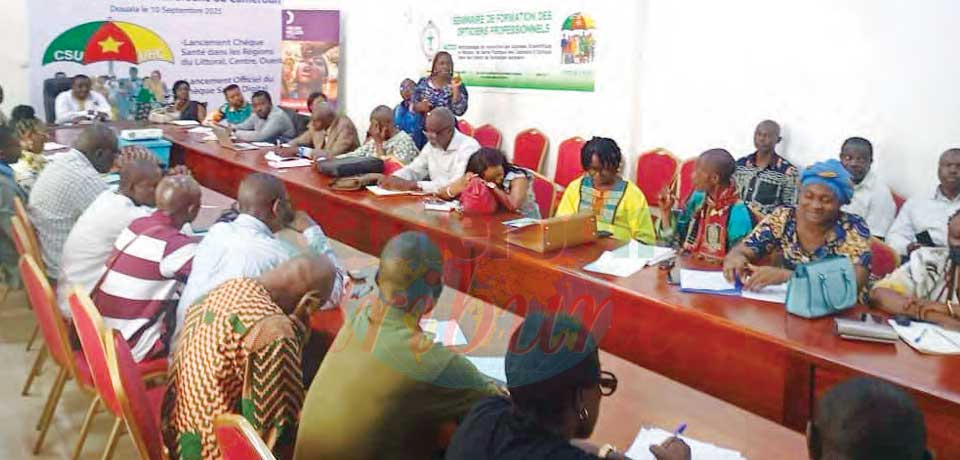
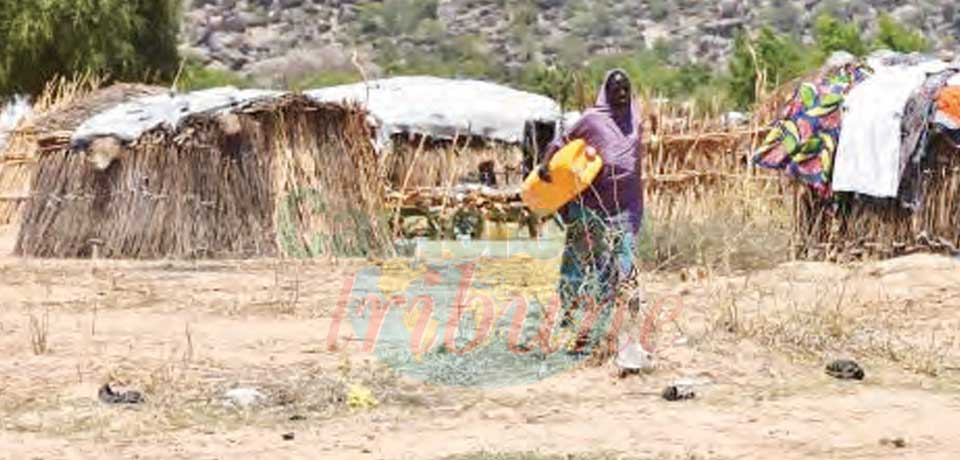
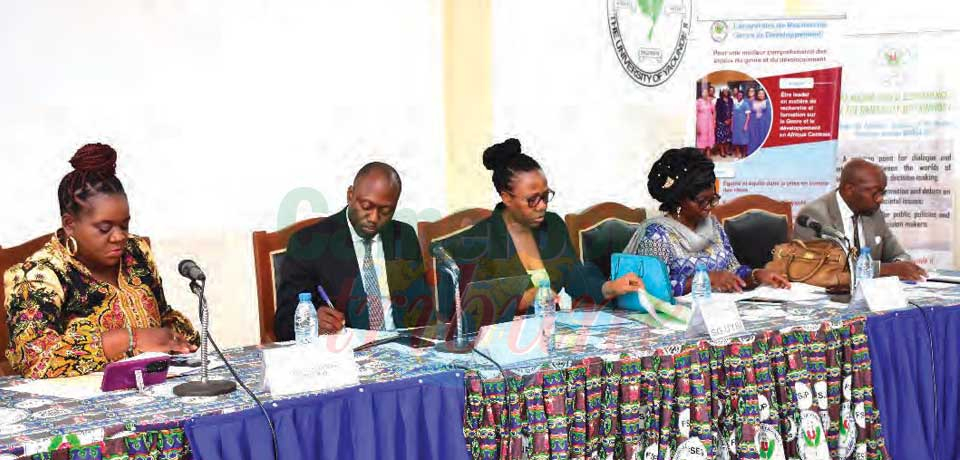
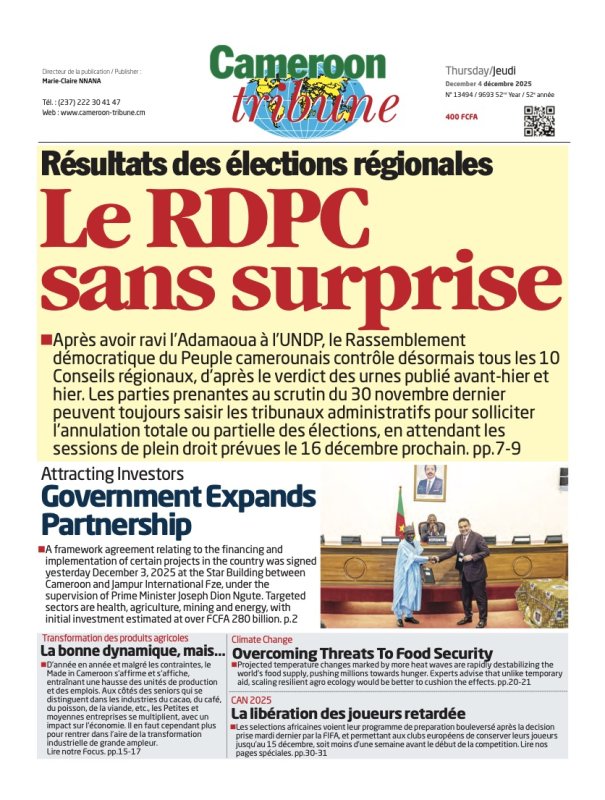




Commentaires